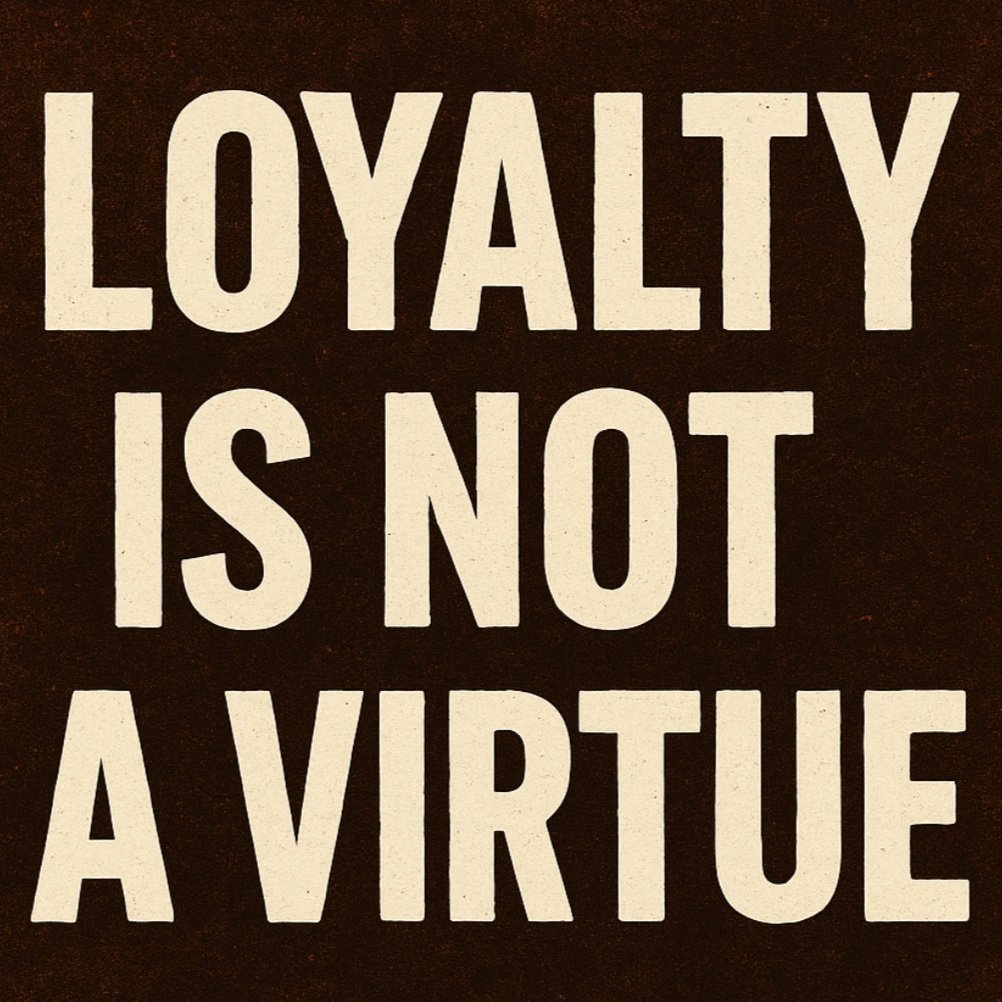Loyalty Isn’t Leadership—And We’re Done Pretending It Is
Now a new DNC leader wants to challenge incumbent Democrats—Yes, even when there’s no primary. Cue the outrage: “Disloyal.” “Disrespectful.” “Dangerous.”
But what if it’s the opposite?
What if the real danger is protecting power instead of interrogating it? What if the ones calling for “unity” have confused silence with strategy?
Organizations are not people.
They will call your loyalty a strength—until you ask the wrong question.
We say we want innovation, but stay loyal to the same leaders because they’re “known.” We say we want the future, but keep defending the past out of habit or fear. We say we believe in democracy, but punish people for challenging the default.
Meanwhile, the ground beneath us is being sold off. While we argue about “tone” and “team unity,”
AI is being trained to do our jobs. Private equity is devouring entire industries.
And leadership is telling us to “stand up and fight back”—But how? And for what?
A return to the same burnout culture that rewards a few, exploits the rest, and calls it “progress”?
When we see new leaders challenging the systems
that silence dissent, protect power, and reward compliance over courage— we should recognize them for what they are: Not threats. But truth-tellers.
They’re not dismantling unity. They’re refusing to mistake obedience for vision.
Because real unity isn't quiet.
It's honest.
It's disruptive.
And it dares to imagine something better.
But maybe that’s the kind of danger we need.
Because leadership doesn’t protect power.
It questions it.
It clears the path for what’s next, instead of clinging to what’s always been.
We’re not fighting for a return. We’re building something forward.
We’ve seen what happens when we’re told to be quiet. We’ve felt the cost of staying loyal to something that no longer serves. And we’re not going back.
So if you’re worried about leaders being “challenged” or “called out,” Ask yourself: Why?
This generation isn’t disloyal - just done pretending.
Your Turn
Have you ever stayed loyal to something out of fear, guilt, or pressure? What helped you find your voice again?
Email me at stacy@flowerstreetstrategies.com; I’d love to hear your story.
And if this resonated, share it with someone standing at the edge of their breakthrough.
We don’t owe anyone our silence.

